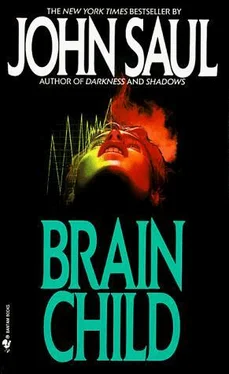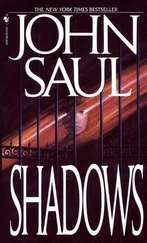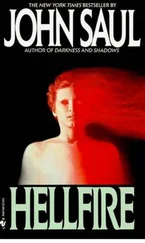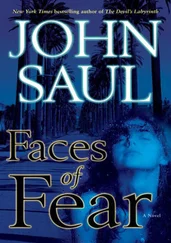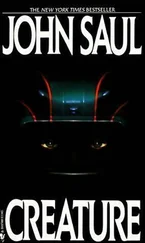John Saul - Brain Child
Здесь есть возможность читать онлайн «John Saul - Brain Child» весь текст электронной книги совершенно бесплатно (целиком полную версию без сокращений). В некоторых случаях можно слушать аудио, скачать через торрент в формате fb2 и присутствует краткое содержание. Год выпуска: 1985, ISBN: 1985, Издательство: Random House, Inc., Жанр: Ужасы и Мистика, на английском языке. Описание произведения, (предисловие) а так же отзывы посетителей доступны на портале библиотеки ЛибКат.
- Название:Brain Child
- Автор:
- Издательство:Random House, Inc.
- Жанр:
- Год:1985
- ISBN:978-0-30776793-6
- Рейтинг книги:5 / 5. Голосов: 1
-
Избранное:Добавить в избранное
- Отзывы:
-
Ваша оценка:
- 100
- 1
- 2
- 3
- 4
- 5
Brain Child: краткое содержание, описание и аннотация
Предлагаем к чтению аннотацию, описание, краткое содержание или предисловие (зависит от того, что написал сам автор книги «Brain Child»). Если вы не нашли необходимую информацию о книге — напишите в комментариях, мы постараемся отыскать её.
Brain Child — читать онлайн бесплатно полную книгу (весь текст) целиком
Ниже представлен текст книги, разбитый по страницам. Система сохранения места последней прочитанной страницы, позволяет с удобством читать онлайн бесплатно книгу «Brain Child», без необходимости каждый раз заново искать на чём Вы остановились. Поставьте закладку, и сможете в любой момент перейти на страницу, на которой закончили чтение.
Интервал:
Закладка:
John Saul
BRAINCHILD
Muttering softly, his eyes blazing with fury, he started toward Mrs. Lewis, and began killing her .
Alex remained still in the corner of the kitchen, his eyes glued to the scene that was being played out a few feet away.
He could feel the pain in Mrs. Lewis’s neck as the dark-skinned boy’s fingers tightened around it.
And he could feel the terror in her soul as she began to realize that she was going to die.
But he could do nothing except stand where he was, helplessly watching, for as he endured the pain Mrs. Lewis was feeling, he was also enduring the pain of the thought that kept repeating itself in his brain.
It’s me. The boy who is killing her is me.…
BRAINCHILD
An excursion into absolute terror
by the bestselling master of fear
John Saul
PROLOGUE
To Shirley Osborn, with love, affection and appreciation
The late-August sun blazed down on the parched hills with an intensity that was usually felt only much farther south, and south, the sixteen-year-old boy thought as he moved stealthily through the scrub-oak underbrush of his father’s vast rancho , was where he and his family should have gone long before now.
But his father had insisted on staying.
All year, since the Treaty of Guadalupe Hidalgo had been signed, his parents had been quietly arguing about what to do.
“They will drive us away,” his mother had said over and over. She had said it again only this morning, her tall figure held firmly erect as she sat on a ladderback chair in the shade of the eastern wall of the hacienda, dressed, as always, in black, despite the heat of the morning. Her hands, their long slender fingers betraying nothing of what she might be feeling, worked steadily at the needlepoint with which she occupied herself during the few moments of each day that the pressures of the hacienda allowed her. But his father, as he had every other day, only shook his head.
“In Los Angeles they are honoring the Spanish grants. They will honor them here, too.”
Doña María’s eyes had flashed with impatience, and her mouth had tightened, though when she spoke it was with the respect she always paid her husband, and had taught her daughters to pay to both their father and their brother. “They have not found gold in Los Angeles. There, the land is worthless. Why not honor the grants? But here, even if there is no gold, they will take the land. In San Francisco the ships arrive every day, and the city is full. Where will they go?”
“To the goldfields,” Don Roberto de Meléndez y Ruiz had insisted, but Doña María had only shaken her head.
“Most of them will go to the goldfields. But not all of them, Roberto. Some will see into the future, and want the land. And those men will come here. Who will defend us?”
“The presidio at Monterey—”
“The presidio is theirs now. The war is over, and we have lost. Our troops have gone back to Mexico, and we should follow them.”
“No!” Don Roberto had replied. “We are not Mexicans. We are Californios, and this is our home. We built this hacienda, and we have a right to stay here! And stay here we shall!”
“Then we shall stay,” Doña María had said, her voice suddenly placid. “But the hacienda will not be ours. The rancho will be taken from us. New people are coming, Roberto, and there is nothing we can do.”
And now, this afternoon, they had come.
From a hilltop two hundred yards away, the boy saw a squadron of United States cavalry appear in the distance, making its leisurely way up the trail toward the whitewashed walls of the hacienda. Nothing in their manner indicated a threat, and yet the boy could feel danger. But instead of mounting his horse and riding home, he tied the animal to a tree beyond the crest of the hill, then crouched down into the brush.
He saw his father waiting at the open gates, and could almost hear him offering the men the hospitality of his home. But the riders did not go inside. The squadron waited while one of the stable boys brought his father’s horse. Don Roberto mounted, and the squadron, with his father in its midst, started back down the trail toward the mission village a mile away.
The boy moved as swiftly as he could, but it was slow going. There was only the one trail, and all his instincts told him to stay off it, so he made his way through the tangle of dry brush, hiding himself as best he could in the clumps of oak.
He watched as the squad drew close to the mission, and for a moment his fear eased. Perhaps they were only taking his father to a meeting with the American commandant.
No.
The squadron passed the mission, and continued another hundred yards down the trail to the enormous oak tree around which the village had originally been built. Under its mighty branches, Indians had camped for untold centuries before even the Franciscan padres had arrived.
Suddenly the boy knew what the squadron was going to do, and knew there was nothing he could do to prevent it.
Nor could he leave. He had to stay, to watch.
As his father sat straight in the saddle, one of the men threw a rope over the lowest branch of the tree, while another tied Don Roberto’s hands behind his back. Then they led the black stallion under the tree and tied the free end of the rope around Don Roberto’s neck.
From his hiding place in the brush, the boy tried to see his father’s face, but he was too far away, and the shade of the oak was impenetrable.
Then one of the cavalrymen lashed the black stallions flanks with a riding crop; the horse reared, snorting, and came stamping back to earth. A second later it was over.
The black horse was galloping up the trail toward the hacienda, and Don Roberto de Meléndez y Ruiz’s body was swinging under the embracing branches of the oak tree.
The cavalry squadron turned and at the same leisurely pace started back up the trail toward the hacienda.
The boy waited until the soldiers were out of sight before he picked his way the last fifty yards to the floor of the valley. He stared up into his father’s face for a long time, trying to read in the eyes of the corpse what might now be expected of him. But there was nothing in the twisted grimace of pain, or the bulging, empty eyes. It was as if, even as he died, Don Roberto still hadn’t understood what was happening to him.
But the boy understood.
He turned, and faded away back into the brush.
It was late in the afternoon, and as the sun dropped toward the western horizon, long shadows began their march across the hilltops. Far away, the boy could see the beginnings of a fogbank forming over the ocean.
Below him, the last of his family’s servants were drifting out of the open gates of the hacienda, their meager belongings tied up in worn serapes , their eyes fixed on the brown earth, as if they, too, might be in danger if they so much as glanced up at the guards who flanked the courtyard gates.
Against the inside of the western wall, still protecting herself from the fading heat, his mother sat calmly on her chair, her daughters flanking her, her fingers still occupied with her needlework. Every now and then, he could see her lips move as she offered words of farewell to the departing peones , but none of them replied; only one or two even had the courage to nod toward her.
Finally the last of the servants was gone, and at a signal from their leader, the guards slowly swung the heavy gates closed. The officer turned to face Doña María. His words carried clearly up the hillside.
“Where is your son?”
“Gone,” his mother replied. “We sent him away last week.”
“Do not lie, Doña María. He was seen yesterday.”
Читать дальшеИнтервал:
Закладка:
Похожие книги на «Brain Child»
Представляем Вашему вниманию похожие книги на «Brain Child» списком для выбора. Мы отобрали схожую по названию и смыслу литературу в надежде предоставить читателям больше вариантов отыскать новые, интересные, ещё непрочитанные произведения.
Обсуждение, отзывы о книге «Brain Child» и просто собственные мнения читателей. Оставьте ваши комментарии, напишите, что Вы думаете о произведении, его смысле или главных героях. Укажите что конкретно понравилось, а что нет, и почему Вы так считаете.
